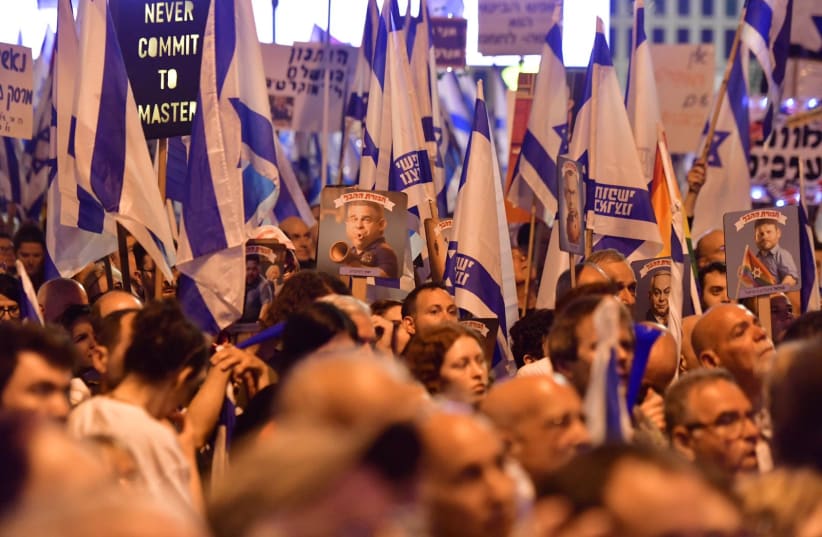A recent study conducted by the Israel Democracy Institute on Thursday has shed light on public stance regarding protests against reform legislation.
The survey included a representative sample of the adult population in Israel aged 18 and above. The study, carried out by Professor Tamar Herman and Dr. Or Anavi from the Viterbi Family Center for Public Opinion and Policy Research at the Institute, highlighted contrasting trends among the Israeli public.
According to the study's findings, approximately 23% of the overall sample reported participating in the protests, while the majority, 77% did not partake.
"There seem to be contradictory trends within the Israeli public," they said. "On the one hand, there are concerns about the deterioration of violence between supporters and opponents of the reform, to the extent of a willingness to accept the prospect of an emergency government led by Netanyahu.
"On the other hand, among the participants in the protests, there is a high estimation of the ability of the protest to slow down the legislative process and even an increase in legitimacy for using exceptional methods, such as refusal to serve in the reserves."
Further analysis revealed higher participation rates among Jewish individuals compared to their Arab counterparts.
The study also showcased a gradual increase in demonstration participation over time among left-wing participants, while the rise in involvement among individuals in the center and right-wing camps was more moderate.
Regarding the legitimacy of protest actions, the survey indicated that demonstrations held in front of public figures' homes garnered the highest level of support.
Furthermore, previous surveys conducted in January and February recorded approval rates of 18% and 24%, respectively, for the legitimacy of refusing to serve in the reserves, indicating similar levels of support to the current survey.
As for the impact of the protests, a notable percentage of respondents believed that the demonstrations had marginally slowed down the legislative process associated with the reform.
However, a fifth of the respondents felt that the protests had no impact on the reform's advancement at all.
Abandoning the reform for national unity
The survey highlighted that 58% of respondents favored abandoning the reform in favor of strengthening national unity. Conversely, 27% believed that the reform should proceed as planned.
When examining voter distribution, a significant majority of opposition party voters favored abandoning the reform to prioritize unity, while a smaller majority of coalition voters supported the continuation of the judicial reform.
Nevertheless, approximately one-third of coalition voters expressed the opinion that the legislative process should be halted to promote unity within the country.
Opinions diverged concerning the formation of an emergency national government led by Netanyahu, with the participation of the Yesh Atid and the National Unity parties, instead of the religious Zionist parties and Otzma Yehudit.
The survey indicated that 39% of respondents supported this idea, while 45% expressed opposition, with a notable percentage remaining undecided.

